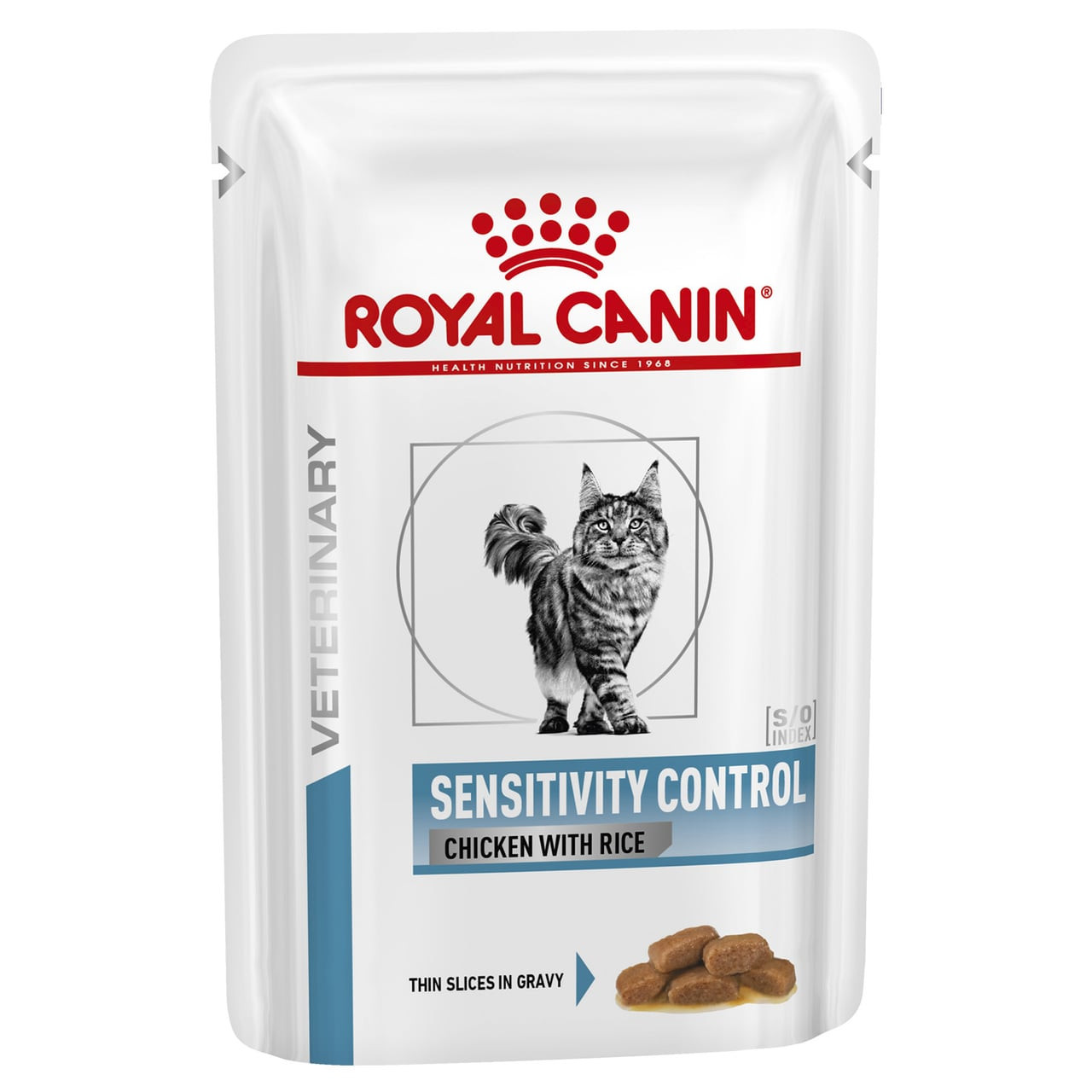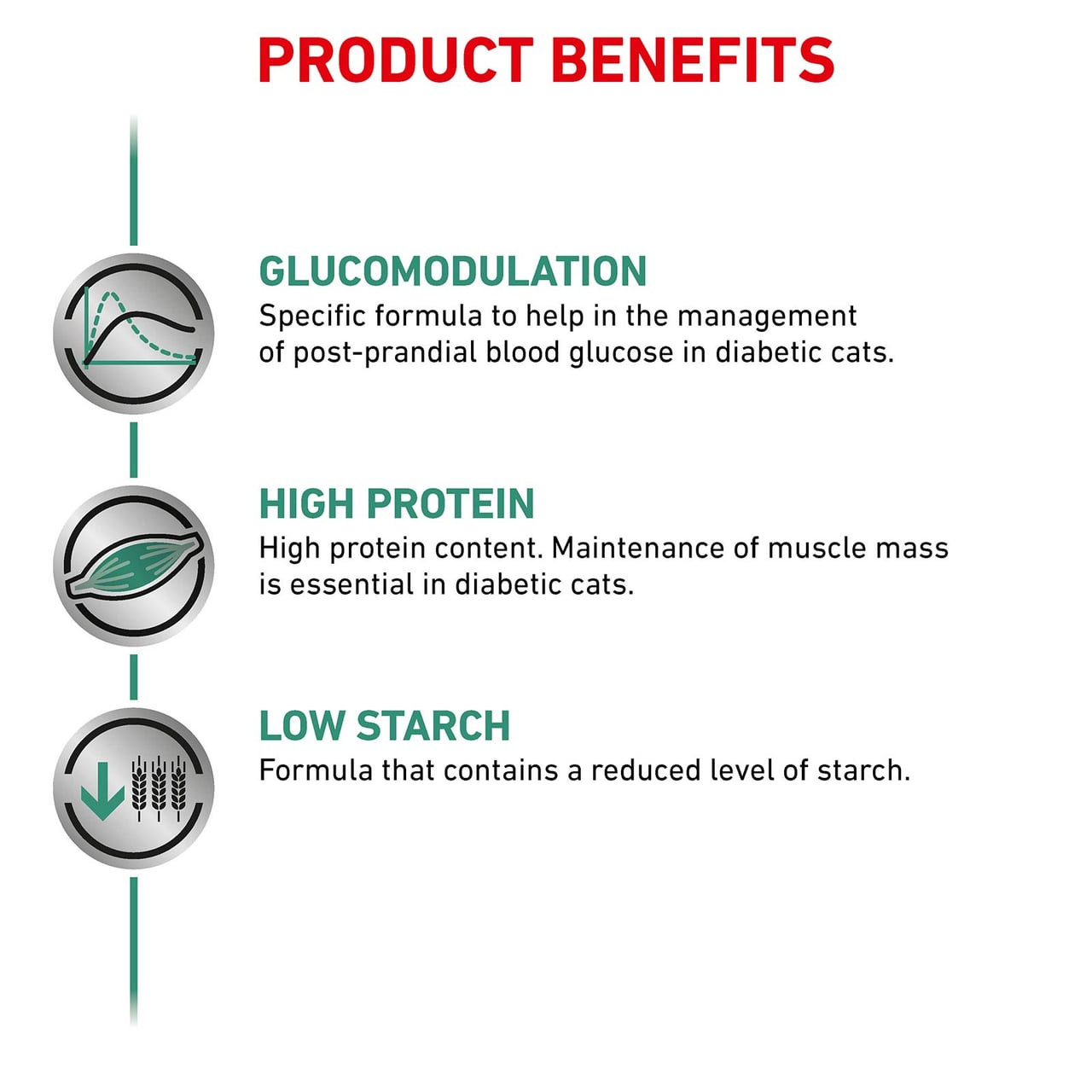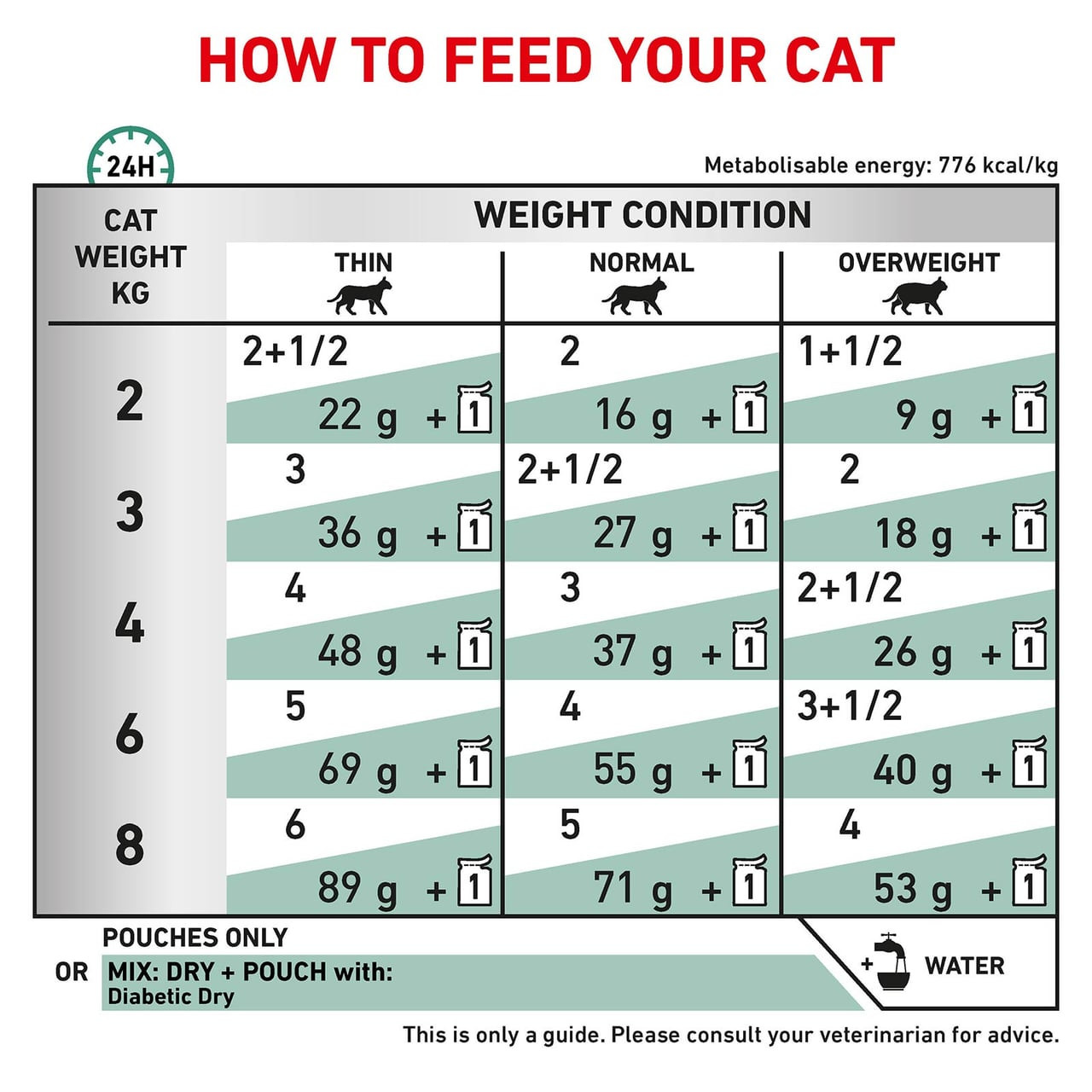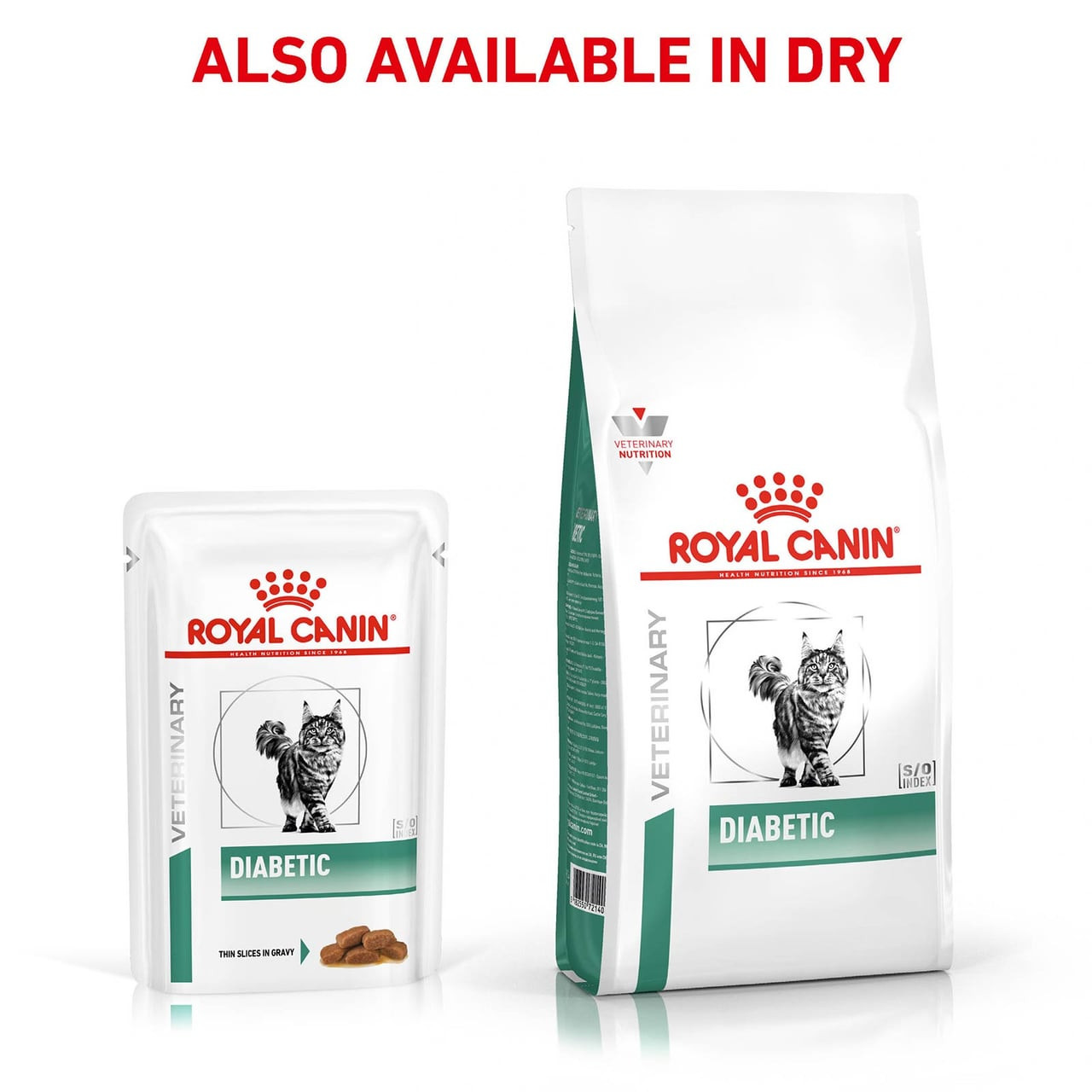Royal Canin Veterinary Diet Feline Diabetic Pouch Wet Cat Food is specifically formulated to support adult cats with Diabetes Mellitus by helping manage blood glucose levels. This diet is designed for diabetic cats and should be fed under the guidance of a veterinarian. It combines high-quality protein, low-glycemic ingredients, and specific nutrients to help regulate blood glucose and maintain an ideal body weight.
Key Features & Benefits
- Blood Glucose Management: Helps manage post-prandial blood glucose levels in diabetic cats.
- Low Glycemic Ingredients: Contains cereals with a low-glycemic index and psyllium mucilages to balance blood glucose levels.
- High Protein Content: Supports lean muscle mass and limits glucose spikes after meals.
- Low Starch: Helps improve blood glucose control and reduce insulin requirements.
- Weight Management: Reduced calorie content helps maintain ideal body weight and minimize insulin resistance.
- S/O Index: The formula creates an environment that reduces the formation of calcium oxalate and struvite uroliths in the urine.
Directions for Use
- Veterinary Supervision: It is recommended to consult with a veterinarian before and during the use of this product.
- Feeding Options: Wet food can be fed alone or combined with dry food. The recommended dry food is Royal Canin Veterinary Diet Feline Diabetic Dry Cat Food.
- Initial Feeding: Feed for up to 6 months for optimal diabetes management.
- Consistent Rationing: Maintain consistent food types and daily rations to support blood glucose control.
- Meal Frequency: Divide the daily ration into several meals to maintain stable blood glucose levels.
- Transitioning Diet: If the cat has a Body Condition Score (BCS) of 7/9 or higher, transition to SATIETY Weight Management once blood glucose control is achieved.
- Monitor Insulin Sensitivity: Changes in diet may affect insulin sensitivity. Monitor blood glucose and adjust insulin dosage accordingly.
- Regular Assessments: Periodic veterinary check-ups are recommended to assess concurrent diseases and adjust the diet as needed.
Ingredients
- Meat and animal derivatives, derivatives of vegetable origin, cereals, minerals, oils and fats.
Additives per kg:
- Vitamin D3: 270 IU
- Iron (E1): 3 mg
- Iodine (E2): 0.4 mg
- Copper (E4): 3 mg
- Manganese (E5): 0.8 mg
- Zinc (E6): 8 mg
Technological Additives:
- Clinoptilolite of sedimentary origin: 1 g
Key Nutrients (per 100g as fed)
- Protein: 8.9 g
- Fat: 3.2 g
- Digestible Carbohydrates (Starch): 1.2 g
- NFE: 2.6 g
- Crude Fibre: 1.1 g
- Dietary Fibre: 1.1 g
- Omega 6: 0.60 g
- Omega 3: 0.17 g
- EPA + DHA: 0.11 g
- Calcium: 0.29 g
- Phosphorus: 0.21 g
- Sodium: 0.16 g
- Arginine: 0.55 g
Metabolisable Energy: 78 kcal per 100g, 780 kcal/kg


















































